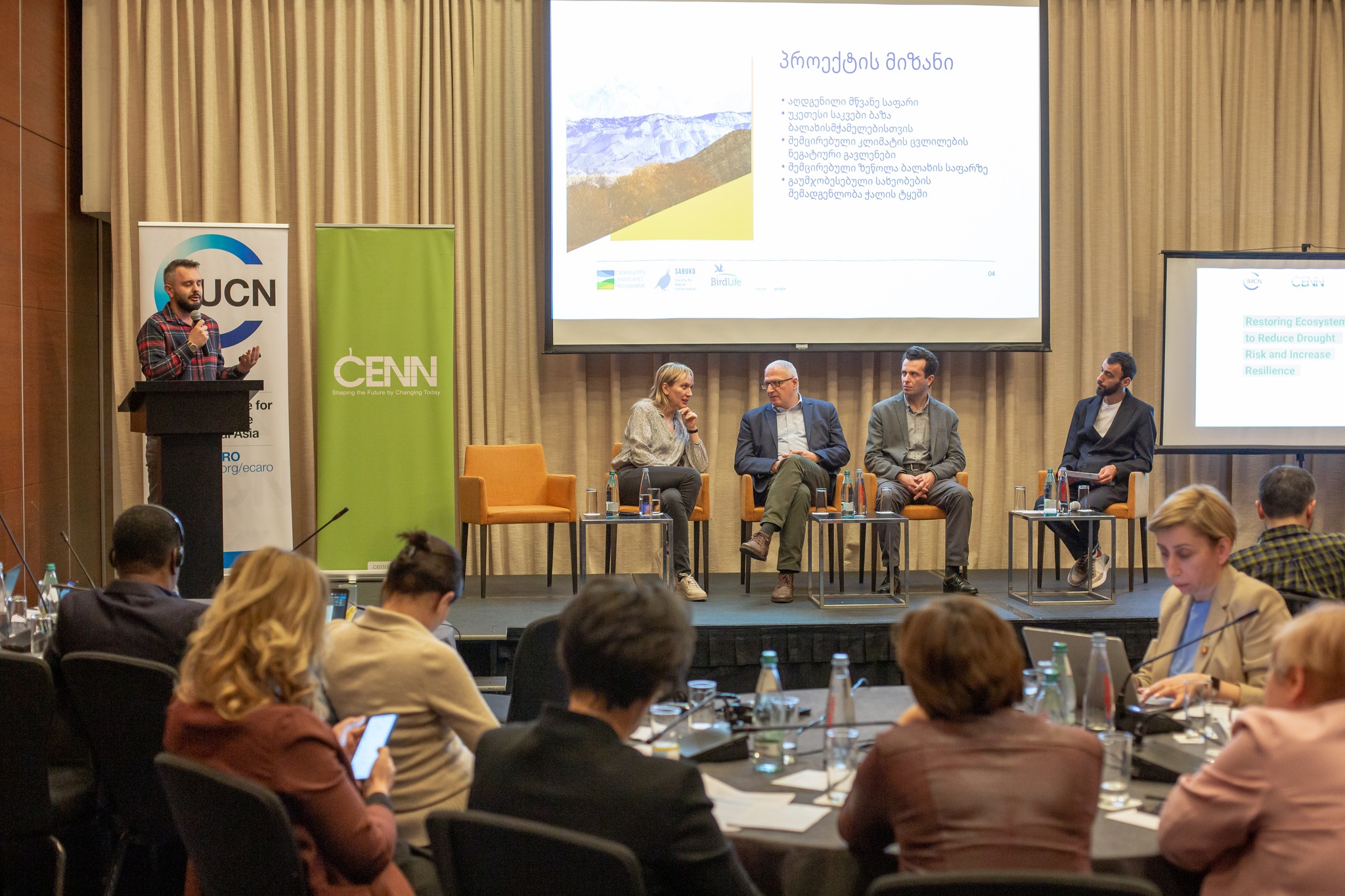In cooperation with IUCN and with the financial support of the Austrian Development Cooperation (ADC), representatives of the state, civil and international sectors discussed the issues of drought management at a two-day seminar held within the framework of the CENN project “Nature-based Solutions to Reduce Drought Risk and Increasing Drought Resistance.”
The two-day seminar was held in cooperation with CENN and the World Union for Conservation of Nature, the Ministry of Environmental Protection and Agriculture of Georgia, and other governmental and non-governmental organizations.
At the workshop, state, civil and international organizations agreed on the need to create special drought management systems, which, through complex measures and nature-based solutions (NBS), should reduce the frequency and severity of droughts and increase the resilience of natural and urban environments to drought.
During the seminar, international partners presented concrete solutions based on nature, which are successfully implemented in different European countries for drought management. The problem is even more acute in Georgia. Considering the events of recent years, the damage caused by drought and the expected risks can be assessed as alarming.
Given the nature of the drought, responding to it requires a combination of emergency and complex measures. Drought is largely attributed to meteorological and climatic phenomena, but there is evidence that land degradation significantly increases the negative effects of drought. Land management fundamentally affects soil structure, which determines its physical, chemical and biological properties. Consequently, it affects the hydrologic cycle, including water infiltration, soil water retention, surface runoff, and groundwater recharge. This fact has a direct impact on the ecological cost of water and land productivity.
Nature-based Solutions (NbS) provide ecosystem-based approaches to address drought through sustainable land management and restoration, focusing on managing and restoring land productivity and biodiversity, whilst addressing the social and economic development concerns that drought brings to communities and countries.
IUCN and CENN jointly implement the “Nature-based Solutions to Reduce Drought Risk and Increasing Drought Resistance.” project, which aims to enable the actors to integrate ecosystem restoration actions into drought management and policy in order to reduce the frequency and severity of drought and strengthen resilient nature-based solutions to drought.
